We ship worldwide from the USA and UK
PRIME MALE BLOG : GET BACK TO YOUR PRIME
We ship worldwide from the USA and UK
PRIME MALE BLOG : GET BACK TO YOUR PRIME
For most people, the thrill of thoughtless indulgence that Christmas Day brings is what motivates them through the unforgiving winter months.
‘Tis the season to be jolly – but what comes after Christmas day?
All those extra calories – coupled with a more relaxed workout schedule – could really have an impact on your body goals and mood.
But what if we told you, this year you could still enjoy your festive feast – but without the fear of losing muscle strength or vitality?
Here, we have listed some top Christmas staples, packed with nutritional benefits as well as body sculpting and brain-boosting qualities – leaving no room for post-festive guilt!
Table of Contents
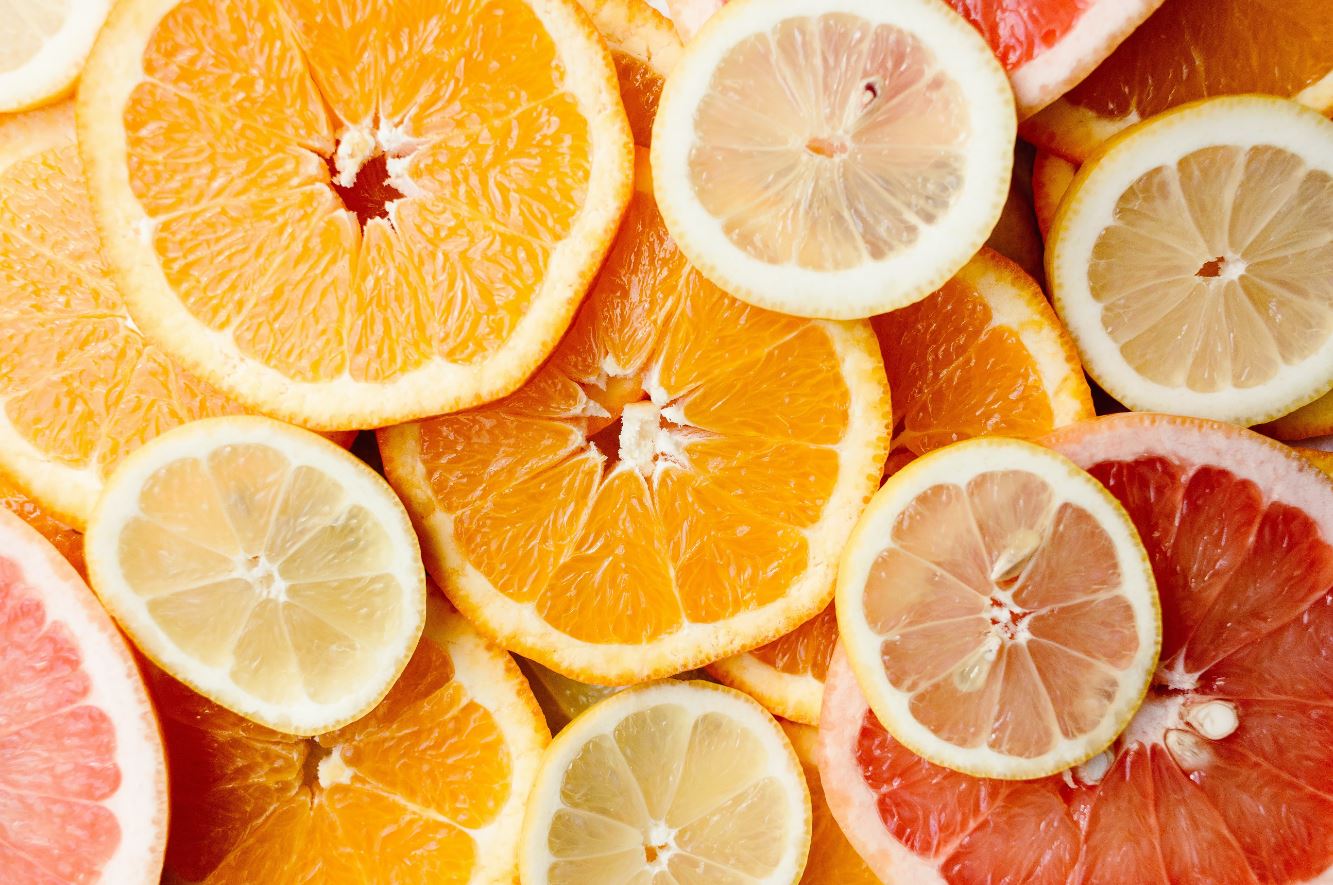
This vibrant fruit is jam-packed with vitamins and minerals which are key to keeping your body and mind healthy. One large orange provides over 100% of your recommended daily intake of vitamin C, which has a well-earned reputation for strengthening your body’s natural defenses and boosting your entire immune system by protecting it from harmful free radicals[1].
Vitamin C is also a key player in top brain performance, healthy skin[2] and absorbing vital minerals like iron into your body[3]. Minerals like potassium found in oranges have been linked to lowering the chance of heart disease and managing high blood pressure[4].
Because oranges are packed with fiber, they also make a satisfying snack when you need a break from the unhealthier Christmas treats, keeping you fuller for longer[5] so you can keep calorie intake minimal.
Across the globe, Christmas dinners feature various traditions. But one which is often found at the center of the festive feast is a roasted meat of some kind. Arguably, the most popular choice for the Christmas dinner headlining act – especially throughout the UK and the US – is roast turkey.
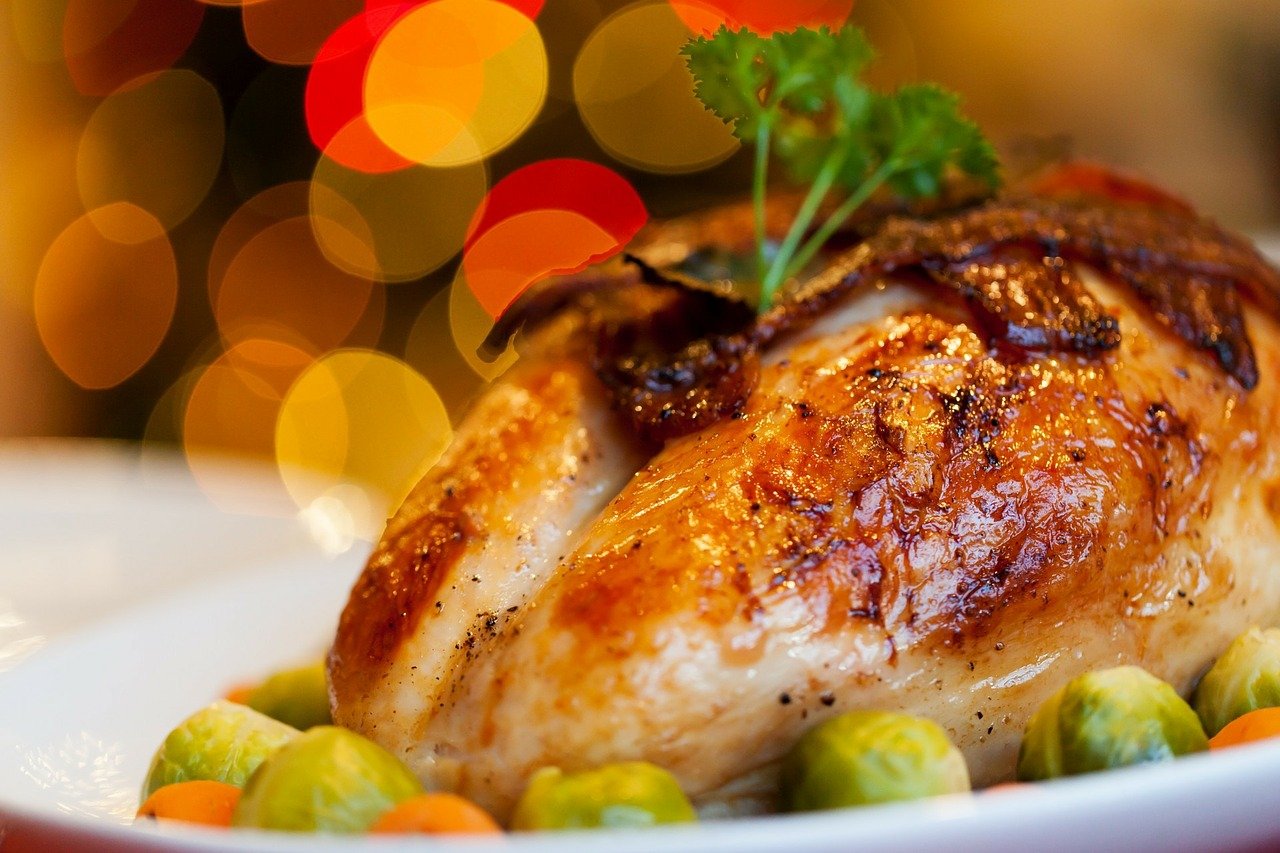
And if you’re trying to keep fat gain to a minimum whilst maintaining muscles this Christmas, turkey is the ideal meat to do so.
Along with many dietary pros, a 3.5oz serving of turkey (without skin) contains only around 139 calories and just 2 grams of fat[6]. It’s also high in protein with 2 thick slices (84g) providing 48% of DV.
Protein has infinite benefits to your body and cultivating lean muscles, including: controlling the hunger hormone ghrelin so you can reduce snacking[7], increasing muscle growth[8], boosting your energy levels for better endurance during workouts[9], reducing blood pressure[10] and promoting healthy bones[11].
Turkey is also packed with B vitamins which help DNA production and energy[12], is rich in selenium which regulates your metabolism[13] and zinc that boosts your immune function and protein synthesis[14].
So, if you’re in two minds about which meat should be the star of your Christmas feast, turkey is the healthy – yet tasty – option.
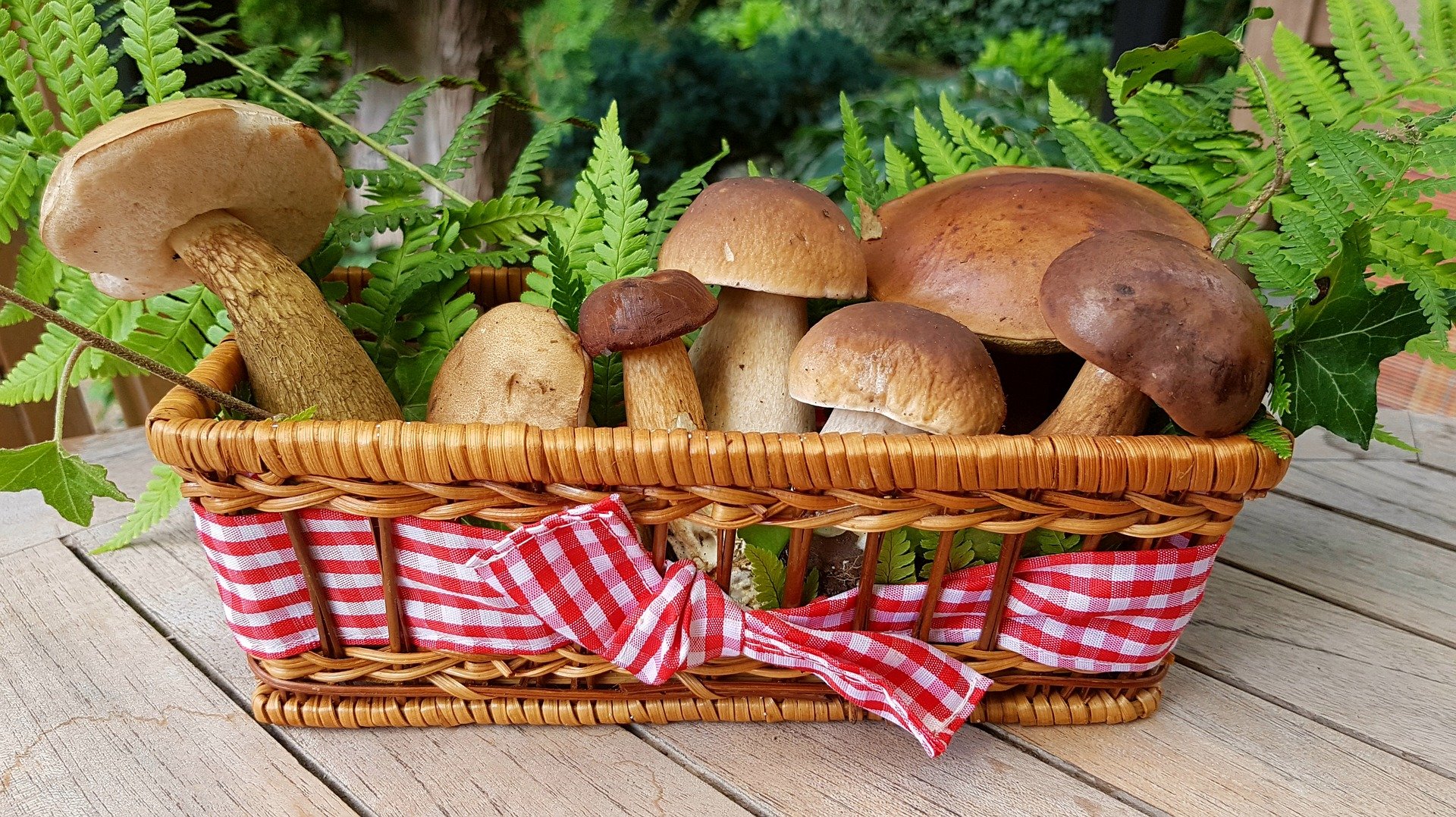
If you’re vegetarian, Christmas dinner can look a little different from the meat eaters’. Though not a traditional addition for some people, mushrooms are a highly nutritious meat substitute – especially when you’re keen to stay healthy.
One cup of white mushrooms contains 3g of protein, 3 g of carbs, 1g of fiber and absolutely no fat at all[15], giving them a great dietary advantage if you’re looking for a balanced entrée that’ll fill you up – without any unnecessary calories.
The good quantity of fiber also helps keep your gut healthy by promoting the growth of prebiotics[16], as well as controlling blood sugar, supporting immune function and even enhancing your brain power, too[17].
Mushrooms also contain endless antioxidants key to combatting oxidative stress, which can decrease the risk of accelerated aging, and developing heart disease or certain cancers[18].
Delicious, nutritious and incredibly versatile, you can integrate mushrooms in your Christmas dinner easily. From appetizers like baked mushrooms with festive cheese or garlic sautéed mushrooms, to a mushroom wellington show-stopper – be creative!
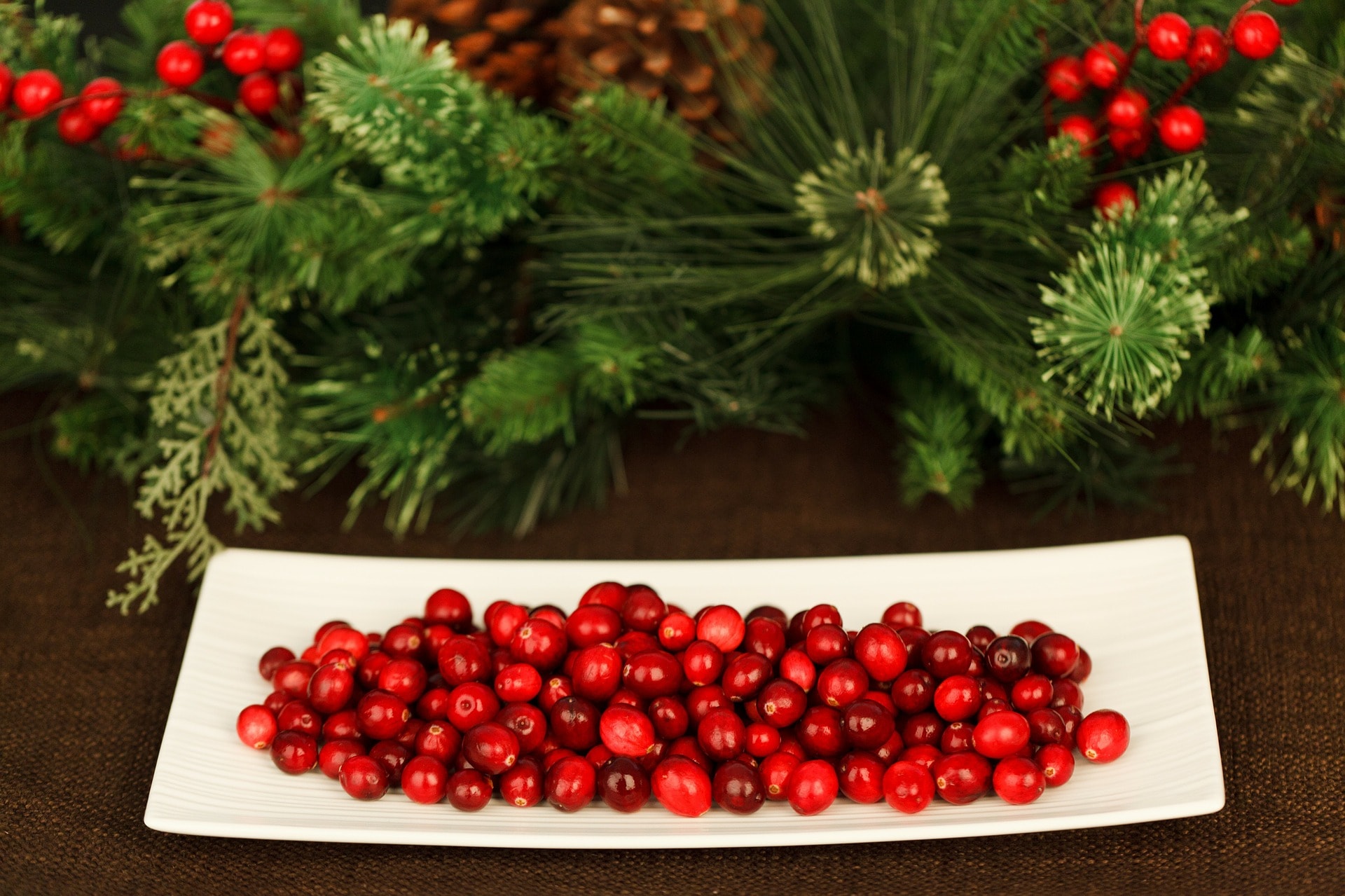
Hugely popular around many transatlantic Christmas dinner tables, cranberries can be included as a tasty addition to a Xmas morning smoothie, or as the perfect accompaniment to turkey in jelly or sauce form.
But this festive berry brings more to the table than its tangy charm, giving them a well-justified place as one of the most healthy Christmas foods. Cranberries are packed with antioxidants – more so than many other fruits and berries[19], giving you the best protection against free radicals. Cranberries have also been linked to improved heart health[20], healthier teeth and gums[21], increased immunity and blood sugar control too[22].
Like most fruits, cranberries are great for keeping lean as they are naturally low in calories[23] and primarily made up of carbs and fiber[24] which can satisfy hunger and boost your energy. You can also find nutritious components like manganese – an essential component for muscle growth and activating metabolizing enzymes to process protein and carbs quicker[25].
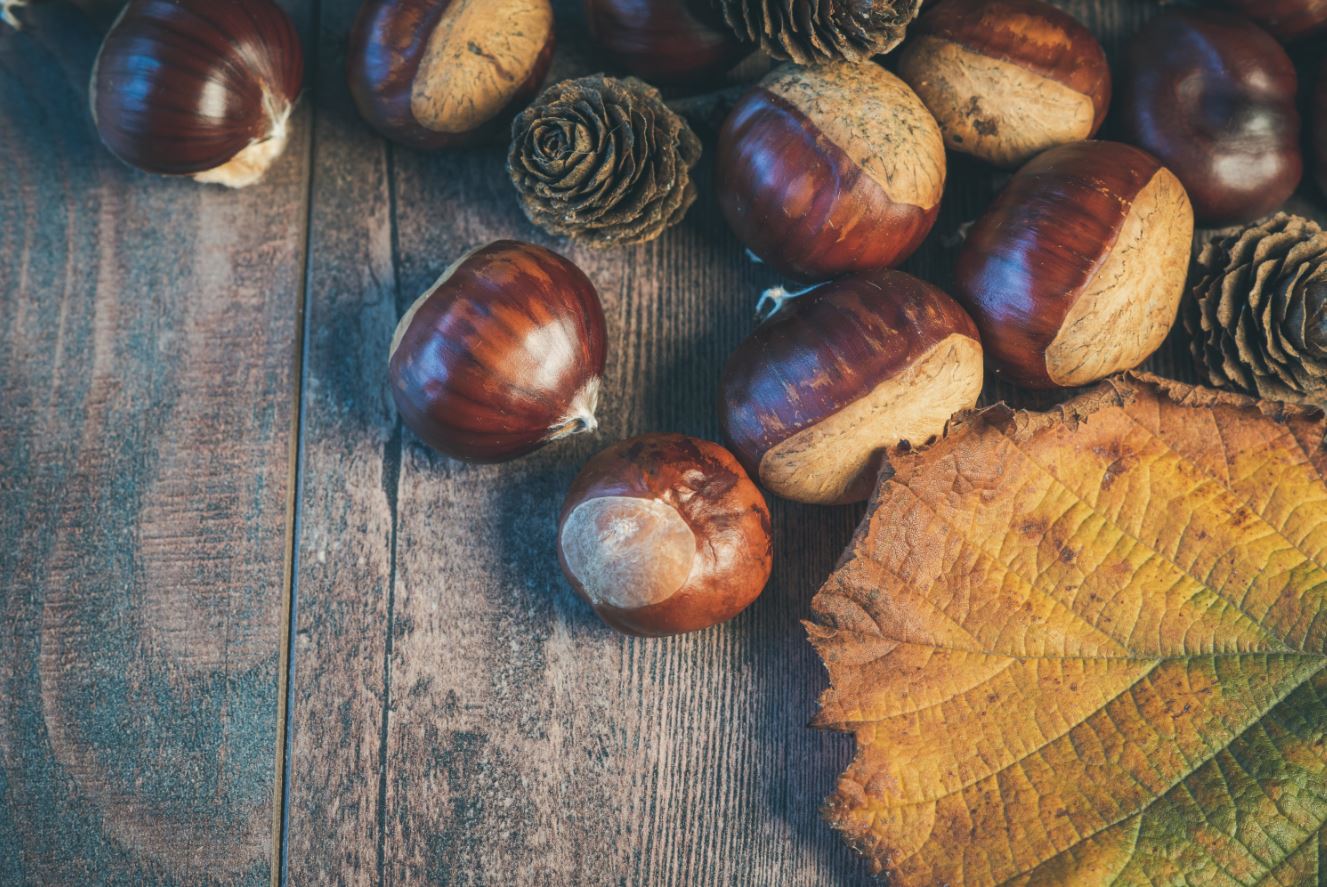
Most famously roasted on an open fire during the festive season, chestnuts have many great qualities that can help you stay on top of your physique and staying healthy.
Not only are they low in saturated fat but they are also a rich source of dietary fiber with around 8g per 100g – making for a healthy snack that’ll satisfy your appetite[26].
Chestnuts are also a good source of antioxidants which can help protect against cardiovascular issues like heart disease or strokes. The high fiber content also works to improve digestion and control blood sugar[27], keeping your gut healthy and curbing unhealthy cravings.
There are countless ways you can integrate this nutty addition into your Xmas spread – from chestnut, bacon and cranberry stuffing, to smashed Brussel sprouts with chestnuts and even a chocolate and chestnut truffle torte for an indulgent alternative to Christmas pudding.
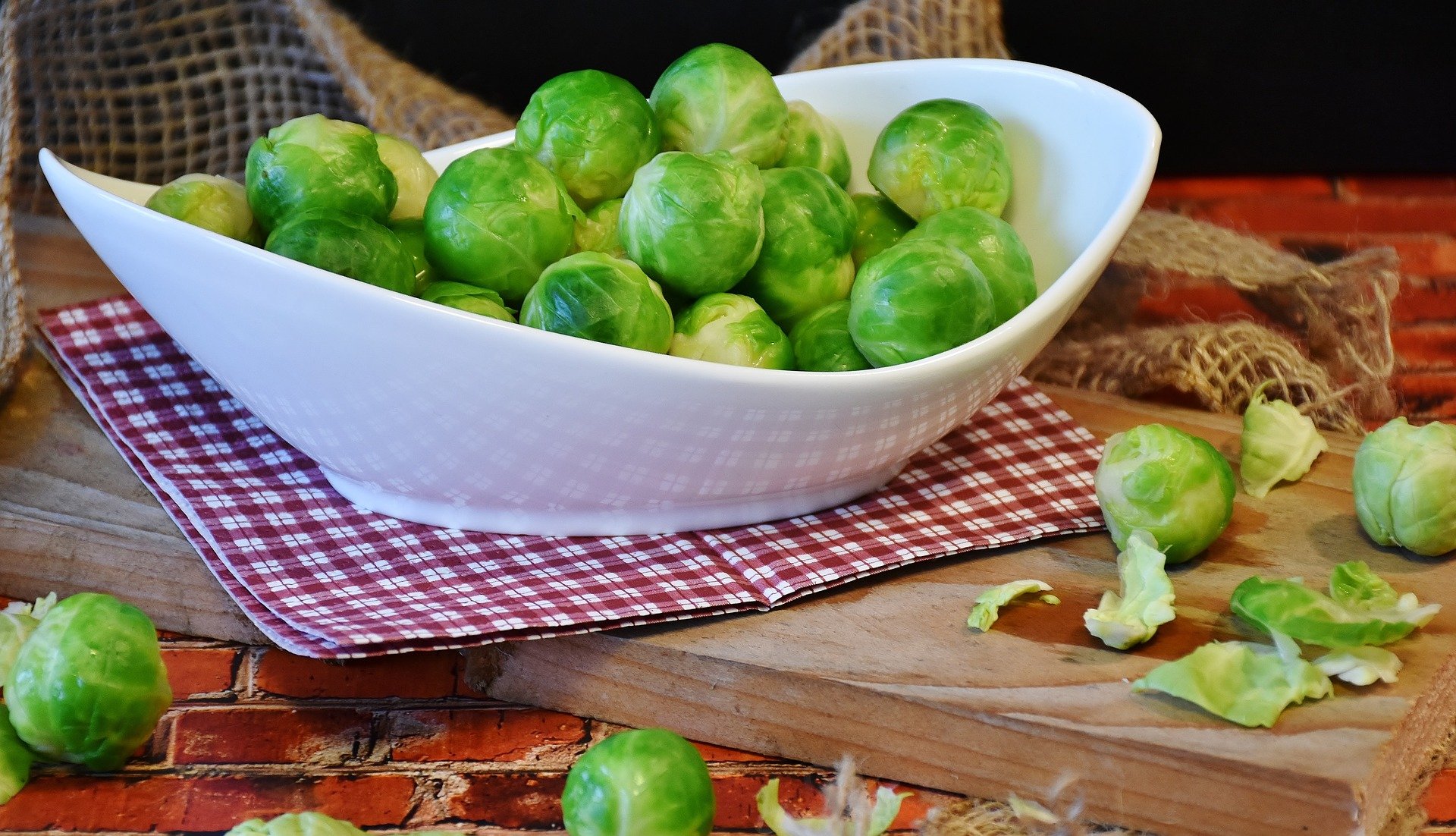
A contentious addition to any Christmas dinner, Brussel sprouts are some people’s idea of hell – whilst others can’t get enough. Even if you’re not keen on them, sprouts have a whole host of health benefits and could be key to revitalizing your whole body and mind.
Half a cup of Brussel sprouts contains only 28 calories, with 2g of protein, 6g of carbs and 2g of fiber which can kickstart your metabolism, help cultivate muscles[28] and keep hunger at bay[29].
Studies show that sprouts help protect against cancer-causing agents[30], and increase detoxification enzymes by up to 30%. 78g of cooked sprouts is also packed with vitamins like K, which is vital for bone growth[31] and the formation of blood clots[32].
For vegans and veggies, sprouts are great for keeping on top of your omega-3 fatty acids too – giving you improved brain power[33] and eye health. Extensive research shows this amino acid could even fight depression and anxiety[34] too.
So, even if you need to smother them in cranberry sauce, by adding a few Brussel sprouts to your Christmas dinner you could really help enhance both your mood and physique at the same time.
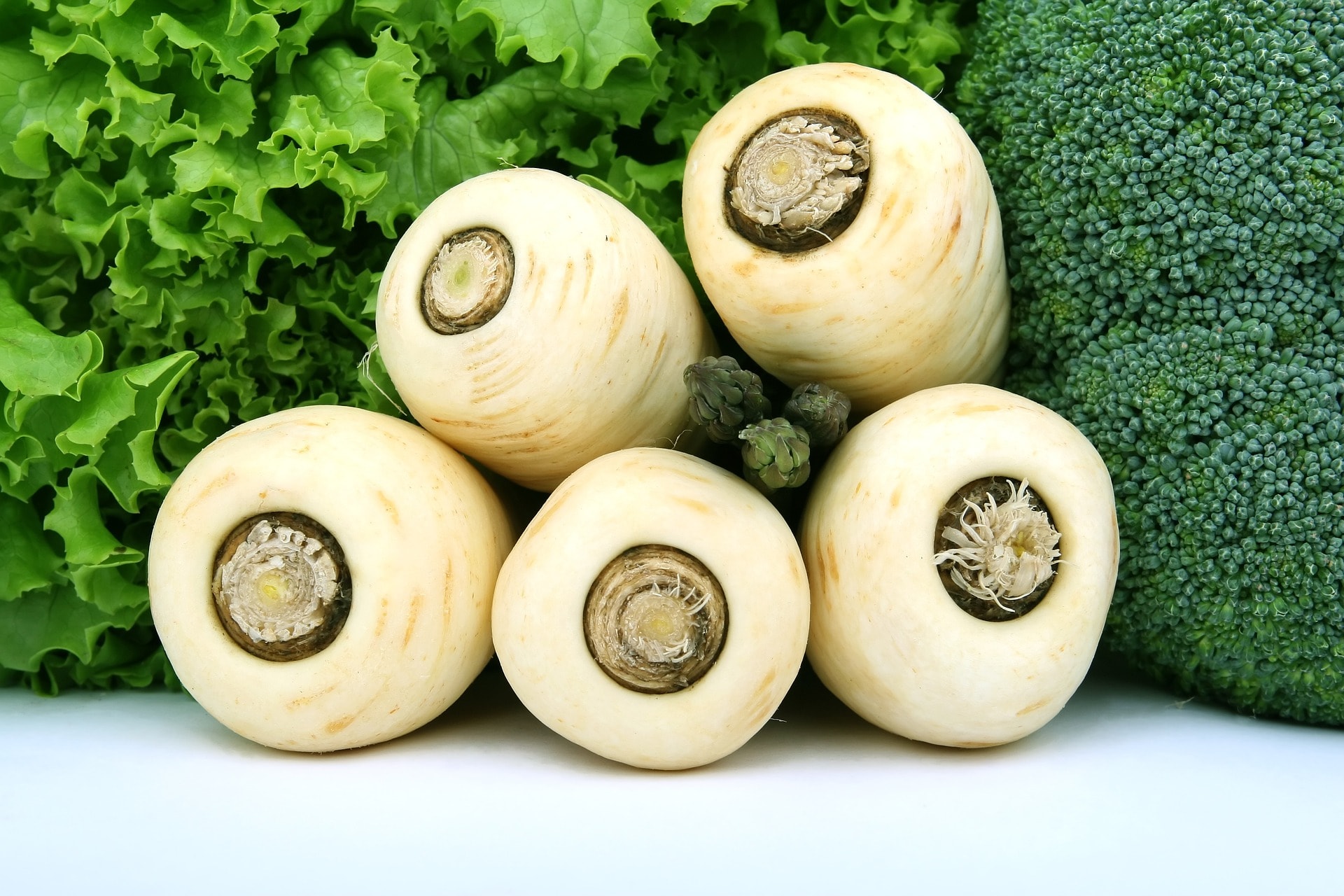
This sweet root vegetable might not always be included in the line-up to your festive feast – but they’re certainly worth a shout out for their impressive nutritional qualities.
One cup contains over 20% of your recommended daily allowance of vitamins C, K and folate. You can also find nutrients like magnesium, zinc, calcium and vitamins B6 and E too[35].
The combination of antioxidants from the vitamins and minerals help protect against chronic conditions such as cancer, diabetes and heart disease[36]. You can also enjoy an immunity boost to combat infections and reduce the length of the common cold[37].
Parsnips also have a strong link to keeping your physique lean. They have a high water content which decreases calorie intake[38], and are rich in fiber for added satiety to reduce your appetite[39].
Oven roasted, boiled, mashed, grilled – Parsnips can be prepared in infinite ways to suit your taste and make an appearance at your Xmas banquet this year!
As you’ve seen, Christmas time doesn’t have to be the unhealthy, calorie explosion it is renowned to be.
There are plenty of traditional healthy Christmas foods you can still enjoy without compromising on your physique, as well as getting ahead with a nutritional edge and even keeping on top of your cognitive health too.
The festive period is a time to chill out and reboot from the stresses of the year, so don’t be too strict on yourself. The odd treat here and there won’t have a major impact your muscle mass – plus, by rewarding your progress, you will naturally boost your motivation.

And don’t forget, you can enhance your muscle-building, strength, libido, fat loss and mood by coupling these nutritious foods with the market-leading testosterone-booster, PrimeMale. Stacked with the 100% natural, highly premium and scientifically backed formula of T-boosting ingredients, you can keep cultivating that lean, sculpted physique and achieve that youthful vitality quicker.
Get your vitality supplement here!
Or why not check out PrimeMale’s exclusive list of T-boosting tips which will accelerate muscle growth, revive energy and transform your mood so you can take on any challenge that comes your way!
So, tuck into your festive feast with confidence this year –
and have a merry Christmas from all of us here at PrimeMale!
[1] https://journals.humankinetics.com/view/journals/ijsnem/7/1/article-p1.xml
[2] https://www.healthline.com/nutrition/vitamin-c-benefits
[3] https://pubmed.ncbi.nlm.nih.gov/20200263/
[4] https://pubmed.ncbi.nlm.nih.gov/21371638/
[5] https://pubmed.ncbi.nlm.nih.gov/23885994/
[6] https://fdc.nal.usda.gov/fdc-app.html#/food-details/337352/nutrients
[7] https://pubmed.ncbi.nlm.nih.gov/16469977/
[8] https://pubmed.ncbi.nlm.nih.gov/22958314/
[9] https://www.healthline.com/nutrition/functions-of-protein
[10] https://www.healthline.com/nutrition/10-reasons-to-eat-more-protein
[11] https://pubmed.ncbi.nlm.nih.gov/16373952/
[12] https://www.ncbi.nlm.nih.gov/pmc/articles/PMC3257642/
[13] https://www.ncbi.nlm.nih.gov/pmc/articles/PMC5307254/
[14] https://ods.od.nih.gov/factsheets/%20Zinc-HealthProfessional/
[15] https://www.healthline.com/nutrition/white-mushroom-nutrition#benefits
[16] https://pubmed.ncbi.nlm.nih.gov/22555633/
[17] https://www.healthline.com/nutrition/why-is-fiber-good-for-you
[18] https://www.ncbi.nlm.nih.gov/pmc/articles/PMC5551541/
[19] https://pubmed.ncbi.nlm.nih.gov/15186133/
[20] https://pubmed.ncbi.nlm.nih.gov/29476238/
[21] https://pubmed.ncbi.nlm.nih.gov/18663617/
[22] https://pubmed.ncbi.nlm.nih.gov/23267397/
[23] https://www.ndtv.com/health/can-dried-cranberries-help-you-lose-weight-nutritionist-explains-2052190
[24] https://www.healthline.com/nutrition/foods/cranberries#plant-compounds
[25] https://pubmed.ncbi.nlm.nih.gov/29293455/
[26] https://www.nutrition-and-you.com/chestnuts.html
[27] https://www.webmd.com/diet/health-benefits-chestnuts#1
[28] https://www.healthline.com/nutrition/10-reasons-to-eat-more-protein
[29] https://www.healthline.com/nutrition/22-high-fiber-foods
[30] https://pubmed.ncbi.nlm.nih.gov/18293303/
[31] https://pubmed.ncbi.nlm.nih.gov/17906277/
[32] https://www.ncbi.nlm.nih.gov/pmc/articles/PMC3321262/
[33] https://pubmed.ncbi.nlm.nih.gov/16216930/
[34] https://www.healthline.com/nutrition/17-health-benefits-of-omega-3
[35] https://www.healthline.com/nutrition/parsnip
[36] https://www.ncbi.nlm.nih.gov/pmc/articles/PMC3614697/
[37] https://www.ncbi.nlm.nih.gov/pmc/articles/PMC5707683/
[38] https://pubmed.ncbi.nlm.nih.gov/27104562/
[39] https://pubmed.ncbi.nlm.nih.gov/3032831/
Back to Homepage